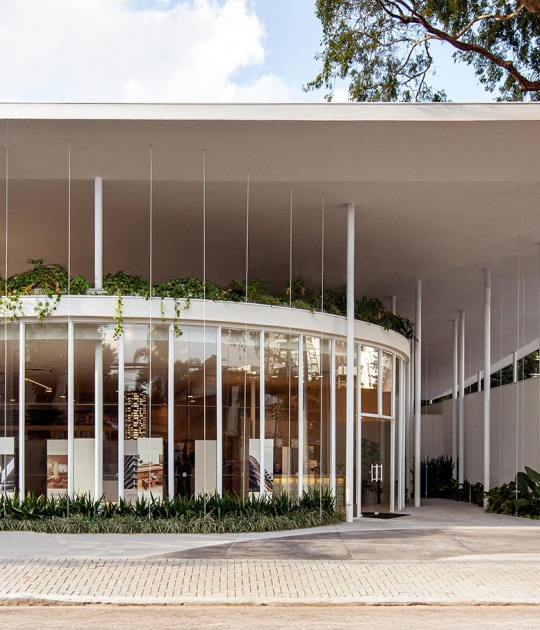Adjacent to the access pavilion, a raised stage area is created as an open-air theater, to make the most of the intervention spaces. One of the project's wishes was to preserve the environment, for this reason special attention was paid to the existing trees and the redesign of the gardens, which allowed creating a natural and welcoming atmosphere.
Project description by COMA Arquitectura
Reflection of this concern for safety, the “Lycée Français Barcelone” commissioned the study of the reinforcement of the school accesses. Located at the main entrance of the enclosure, the project defines a zone of maximum security integrating it nicely into the urban landscape environment.
The commission comes after the horrible vehicle rampage attacks in Nice. As a reflection of this safety concern, the Lycée Français de Barcelone commissioned a study of the reinforcement of the main accesses to the site. The work was carried out alongside security experts appointed by the French government. The result of the preliminary studies reflected the need to place a maximum security area right at the entrance of the school. Said area should contain: a safe space for the security guards (armoured); a passage lock (SAS) that allows the identification of access personnel; a controlled area for vehicle access (chicane circuit) and bollards to prevent vehicles from driving past.
The aim of the project is to combine the need for security with the everyday life of a school campus with over 2,000 students, and withan architectural style of pavilions and gardens. It is the access to the school, the reception and welcome area, so it must be a cosy and friendly place. In this project, the impenetrable security space has been integrated into an open environment without becoming a hard physical and visual barrier. Both the new buildings and the adjacent urbanized areas dialogue with each other in a language of wood, stone and vegetation, and are organically integrated into the existing environment.
The core idea is to create the access pavilions through a centre armoured by steel and concrete panels, and bulletproof glass. This structure is located on an access plane elevated with respect to the existing inner court, which is why there are several ramps and stairs connecting levels. The entire set is covered by light wood gridpanels where the insulation and waterproofing is placed; the finish consists of vertical wood panellingfrom natural Douglas fir without sapwood.
The school's access area is located in the linear gardens along Bosch iGimpera Street. The Lycée wanted to preserve as much as possible the environment and the existing trees. Therefore, another important aspect of the project was to comply with the strict security measures imposed, while integrating it organically into its own environment.
Adjacent to the access pavilions, new urbanized spaces are created, such as benches, retaining walls and a raised platform in the style of an open-air theatre. The gabion retaining walls zigzag to form the stairs and ramps, the outer benches, and the outdoor theatre space. A large metal pergola completes the platform space and is used to support light and sound technical elements. The exterior pavements have been completely renovated creating pedestrian areas marked by a stone path illuminated by the general surface of printed concrete. The careful detail in defining the landscape, the planting of new shrub species, the attention given to the existing trees and the redesign of the gardens have also been essential for the creation of a natural and welcoming atmosphere.
With regard to the exterior façades, on the public side of the project a closure is created that blends in with the pavilions’ façades. It’s a fence with a vertical slatted wood finish (similar to the pavilions). Accesses for people and vehicles are thus integrated into an exterior façade line that is broken up to allow safe and monitored access areas. The façade is carefully designed to preserve the privacy of the enclosure.
Simultaneously with the construction of the pavilions and access areas, in another part of the school grounds, wooden pergolas are built on a terrace conceived as an outdoor dining-room for the teaching staff. It’s built with the same materials and finishes as the access area. A wooden decking is created on which metallic structures are placed holding rings of laminated wood that serve as frames. These frames in turn support the wiring through which the plants will grow to form a green roof that will give light and shelter to the teachers.























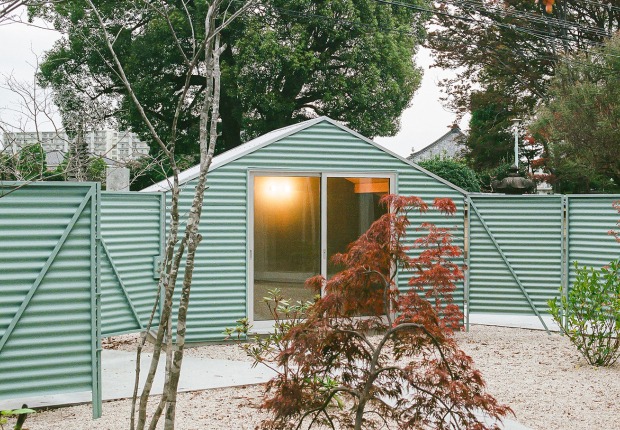
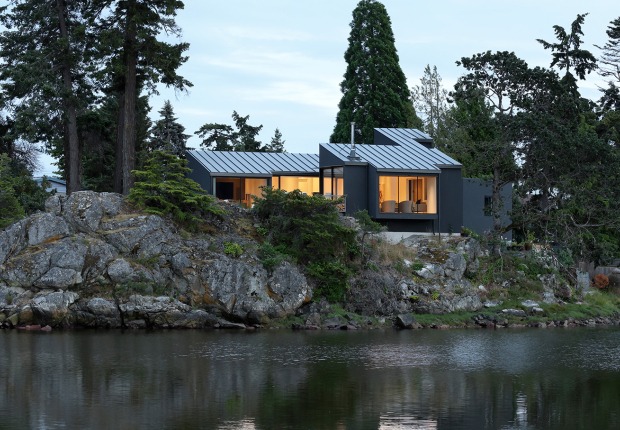
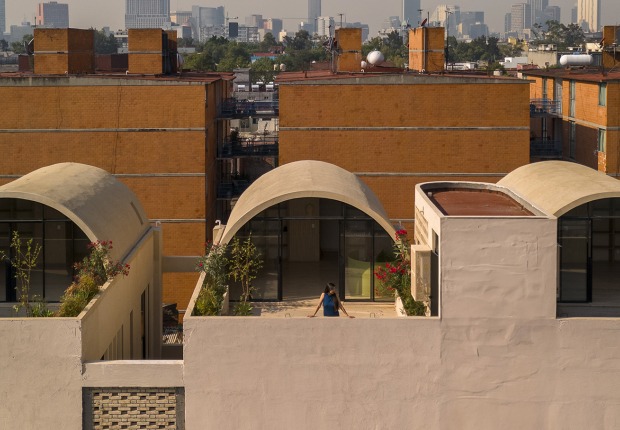

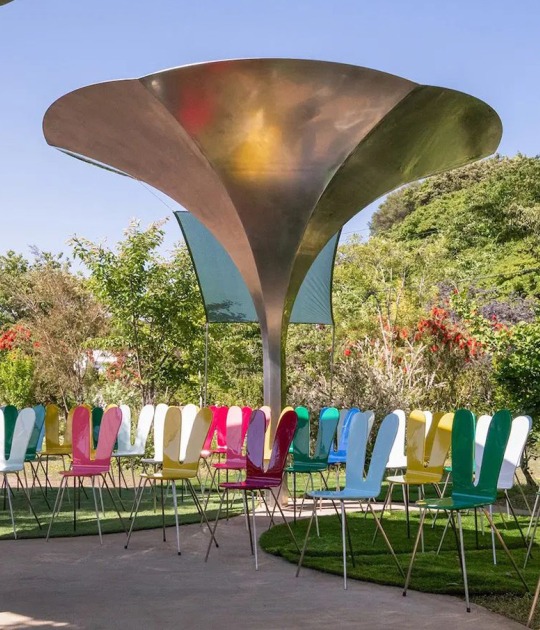
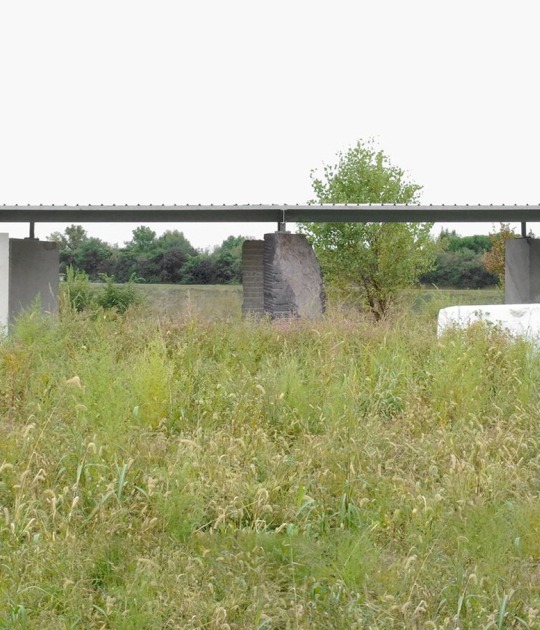

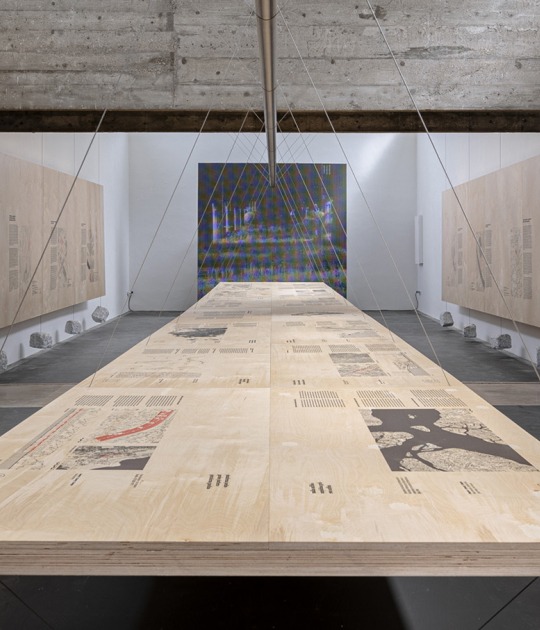
![OB Space [NEMO] by Conjuntos Empáticos OB Space [NEMO] by Conjuntos Empáticos](/sites/default/files/styles/mopis_home_news_category_slider_desktop/public/2025-08/metalocus_conjuntos-empaticos_maca_ob-space-neno_16_p.jpg?h=3b4e7bc7&itok=tsZ36bI0)
